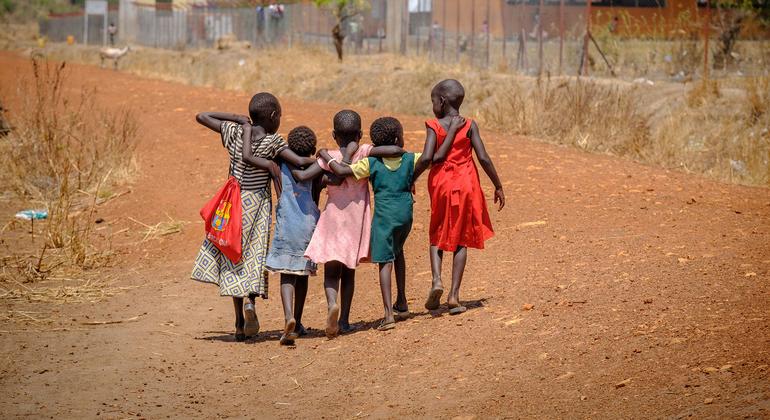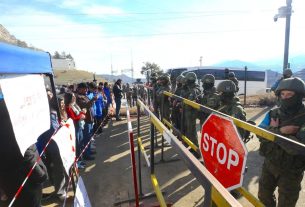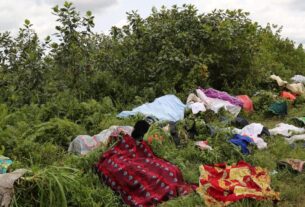In 2022, the UN verified 27,180 instances of grave violations targeting children – use in conflict, killing and maiming, rape and sexual violence, abduction, attacks on schools, and denial of humanitarian assistance, said Virgina Gamba, Special Representative of the Secretary General for Children and Armed Conflict.
Among these violations, over 2,300 children suffered from multiple abuses, and the total number included 2,880 violations that had occurred before 2021 but were only verified last year.
Displaced at greater risk
Briefing countries at the General Assembly’s Third Committee, Ms. Gamba underscored the increased vulnerabilities of displaced children.
Displacement often leads to violations and abuses against children, such as recruitment, abductions, sexual violence, and trafficking.
Additionally, the displacement of children disrupts their access to health and education while denying them humanitarian assistance.
Climate-related factors, such as environmental disasters and the presence of landmines and unexploded ordnance, further exacerbate these dangers.
All under 18 ‘children’
Special Representative Gamba called upon nations to recognize all individuals under the age of 18 as children and to provide them with special protection, as outlined in the Convention on the Rights of the Child.
She highlighted the specific vulnerabilities faced by those aged between 13 and 18.
“Often treated as adults or subjected to counter-terrorism measures at the risk of having their own rights as children curtailed,” she said.
Ms. Gamba also urged greater efforts to collect accurate data and close information gaps to ensure the protection and assistance of all children, including those with disabilities.
The clock is ticking
Najat Maalla M’Jid, Special Representative of the Secretary-General on Violence Against Children, also addressed the Committee, emphasizing that children bear a higher price not only during conflicts and humanitarian crises but also amid political instability and economic hardships.
She expressed concern that progress toward ending violence against children by 2030 is slipping away, and called for urgent and effective measures to reverse this trend.
On her part, she has been actively working to advance child protection from violence through advocacy, advisory, and bridge-building roles with countries and communities.
“My engagement with Member States has highlighted the transformative impact and high return on investing in cross sectoral child protection and violence prevention services that are accessible to all children, irrespective of their status,” Ms. M’Jid stressed.
Rethinking travel and tourism
Her report to the General Assembly focused on protecting children in the context of travel and tourism.
While crucial for global communities and development, this sector also presents child protection challenges.
She emphasized the need for the revival of the sector post-COVID-19 to prioritize sustainability in environmental, economic, and social aspects, as well as freedom from child violence.
Ms. M’Jid called on societies to adopt a zero-tolerance stance against the exploitation of children in various roles within the travel and tourism industry.
“Children may be in the open, selling souvenirs on the street or beach, carrying luggage or waiting tables. They may work behind the scenes, washing dishes or cleaning guests’ rooms. Or they may be completely hidden from sight in massage parlours, brothels or even their own homes, where they endure sexual exploitation.”
The sector has an “unprecedented opportunity” to embed child protection throughout its value chains and destinations as it rebuilds after the pandemic, she stressed, emphasizing that this opportunity must not be missed.


